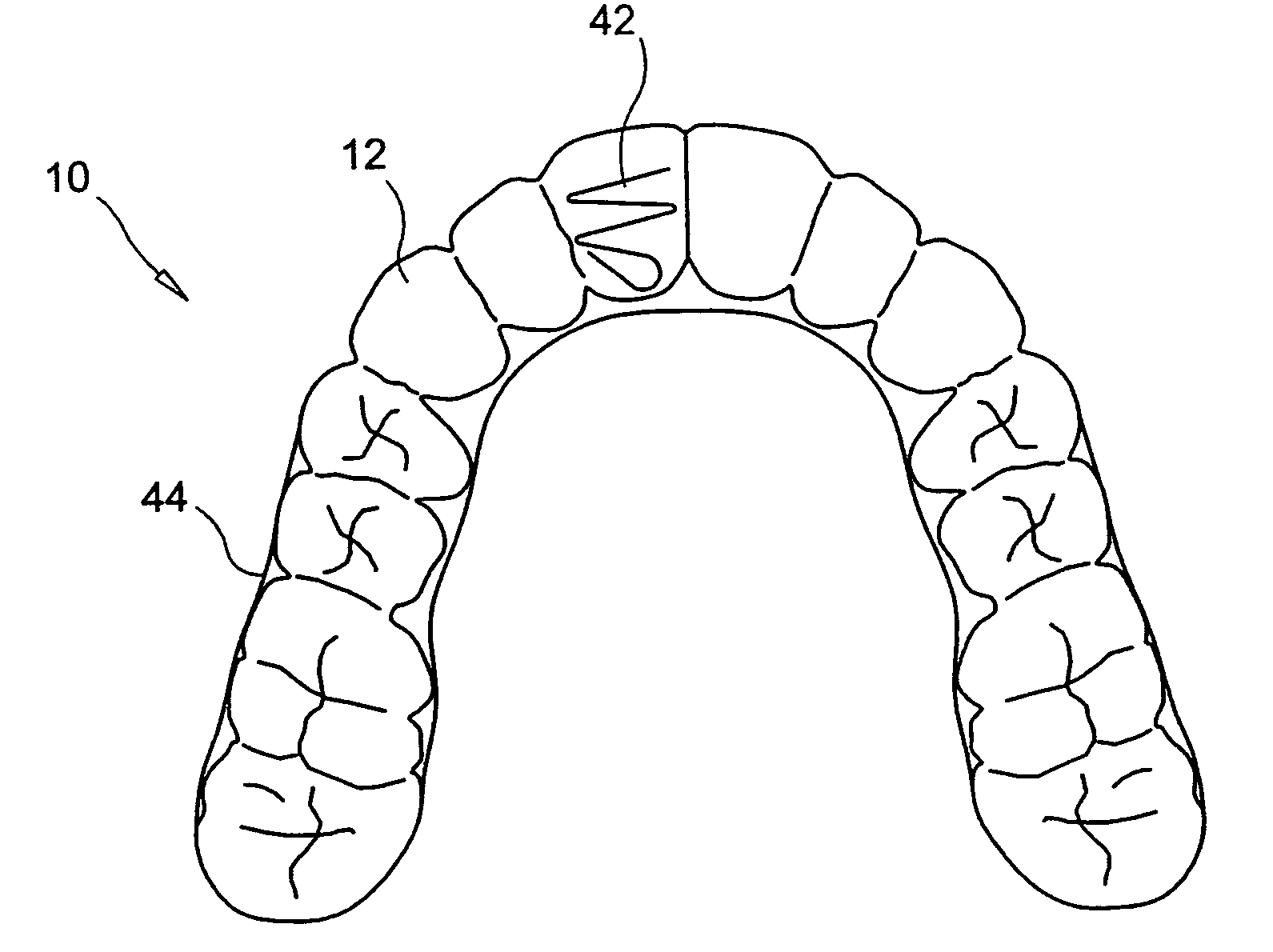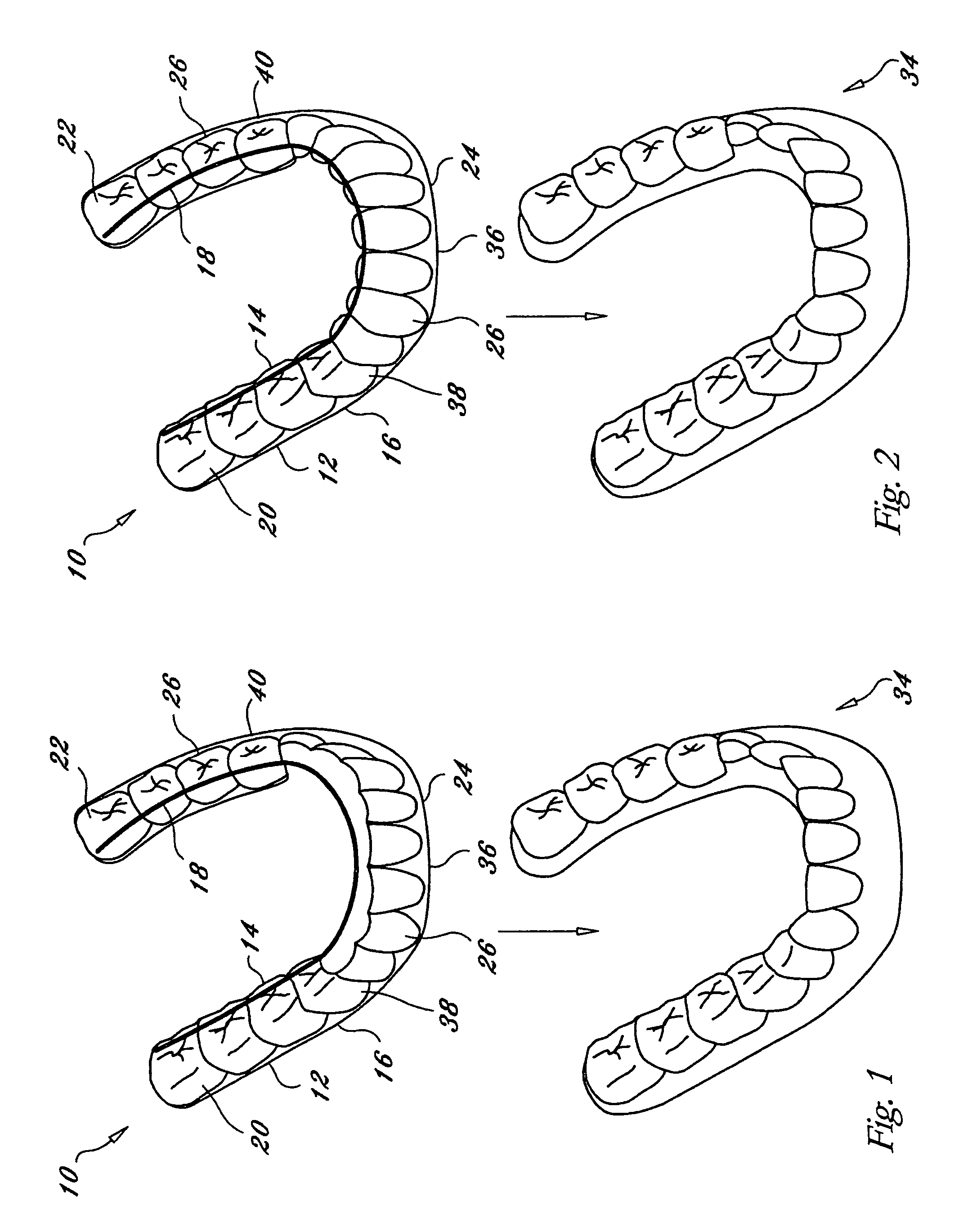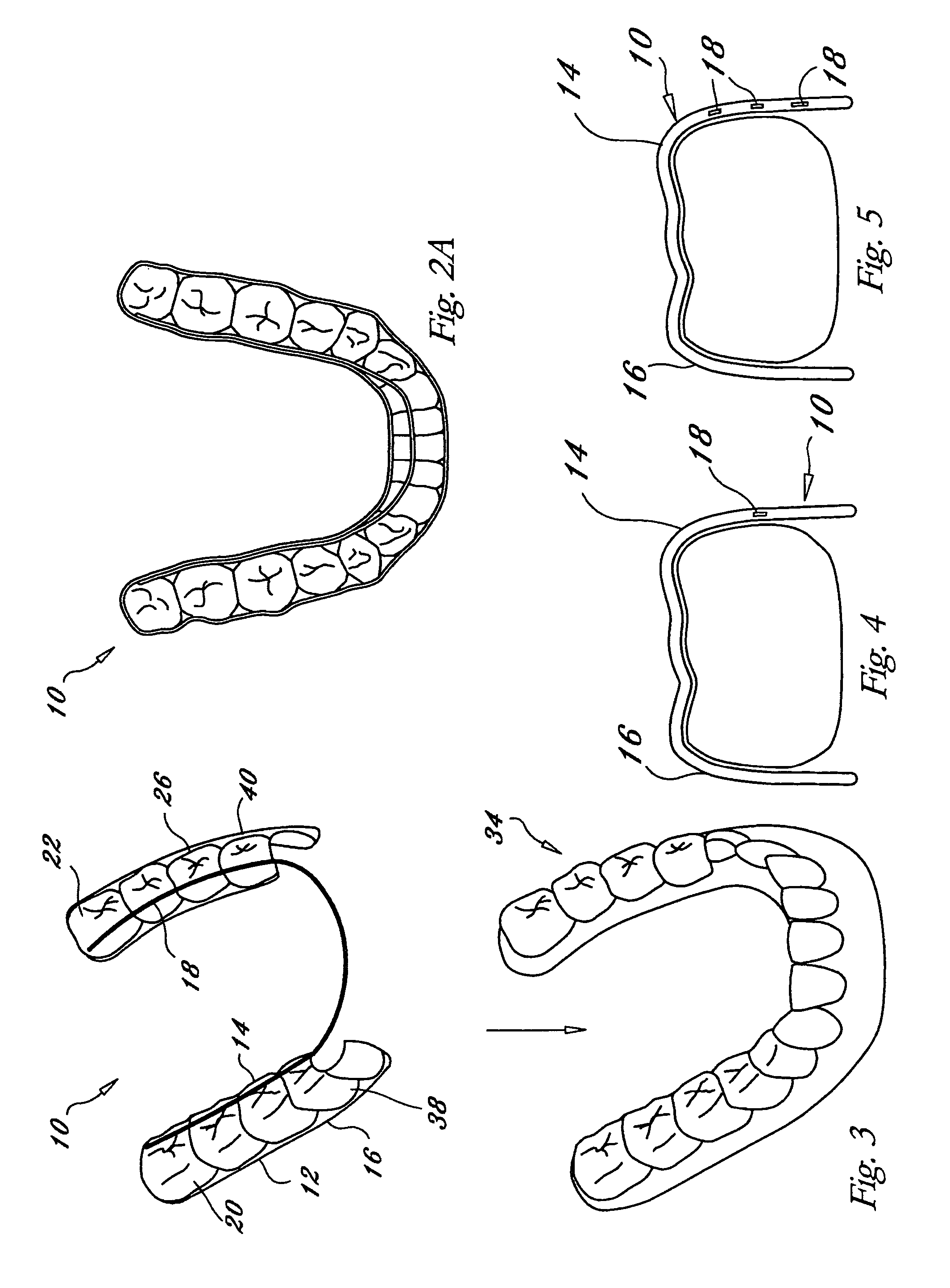Orthodontic appliance with embedded wire for moving teeth and method
a technology of orthodontic appliances and wires, applied in dental surgery, dental tools, medical science, etc., can solve the problems of expensive and difficult manufacturing of devices, inefficient and slow force teaching of patients' teeth, and only a limited ability of apparatuses to move teeth, etc., to achieve pain free and rapid movement of patients' teeth, and easy manufacturing.
- Summary
- Abstract
- Description
- Claims
- Application Information
AI Technical Summary
Benefits of technology
Problems solved by technology
Method used
Image
Examples
Embodiment Construction
[0027]Referring now to the drawings and in particular, FIG. 1, the generally horseshoe shaped clear flexible resilient plastic orthodontic appliance for a patient is shown generally at 10. A plastic portion 12 has a lingual side 14 and a labial side 16. Both the lingual side 14 and the labial side 16 have concave contours 26. These contours 26 snugly contact the patient's teeth 34. The contours 26, especially those over the molars, allow the appliance 10 to remain fixed in place over the patient's teeth 34. The contours 26, especially those on the front 36 of the appliance 10, serve the function of guiding the force of the appliance 10 to move the patient's teeth 34 into an advantageous position. On the lingual side 14 of the appliance 10 are one or more flexible wires 18 at least partially embedded within the plastic portion 12. Preferably, the wires 18 are made of a nickel-titanium alloy or stainless steel, although other similar materials which would provide force on the patient'...
PUM
 Login to View More
Login to View More Abstract
Description
Claims
Application Information
 Login to View More
Login to View More - R&D
- Intellectual Property
- Life Sciences
- Materials
- Tech Scout
- Unparalleled Data Quality
- Higher Quality Content
- 60% Fewer Hallucinations
Browse by: Latest US Patents, China's latest patents, Technical Efficacy Thesaurus, Application Domain, Technology Topic, Popular Technical Reports.
© 2025 PatSnap. All rights reserved.Legal|Privacy policy|Modern Slavery Act Transparency Statement|Sitemap|About US| Contact US: help@patsnap.com



